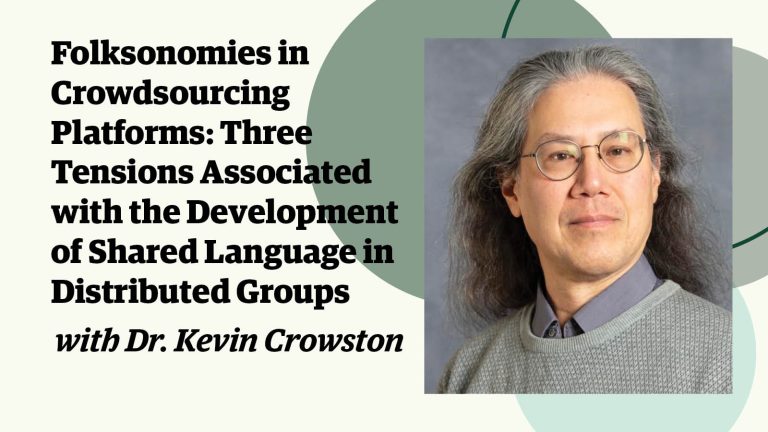

Members of highly distributed groups benefit from developing a shared language, i.e., specialized terminology to describe their shared work and work situations, to coordinate their activities. To better understand how shared language can emerge in and support the work of distributed groups, we review the literature on folksonomies (a kind of shared language) in crowdsourcing systems (one type of distributed work) and analyze three exemplary systems.
The review highlights three inherent tensions associated with the development of folksonomies in crowdsourcing. First, different users of the language may have different needs. In particular, there might be tension if people labelling objects are not the same as those using these labels to search for content. Second, projects need to decide when in the process of language development, they want to intervene to maintain a balance between a stable ontology and the ability of the project to accommodate ongoing changes. Third, who gets to decide on adopted terminology stands as an important problem, and crowdsourcing projects need to decide on a division of power. We illustrate these considerations by reviewing several projects with an emphasis on the Archives of Our Own, the citizen science project Gravity Spy, and the photo-sharing site Flickr.




